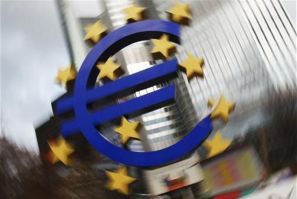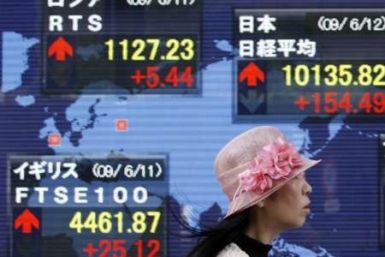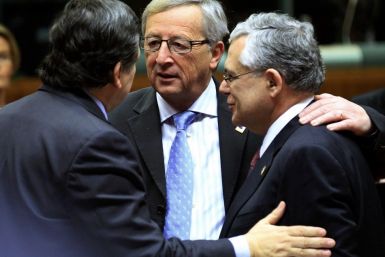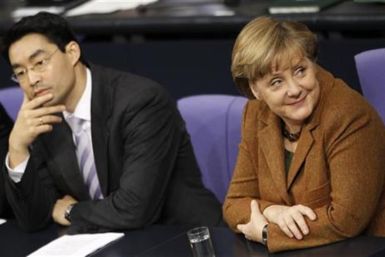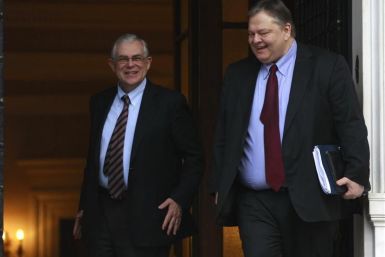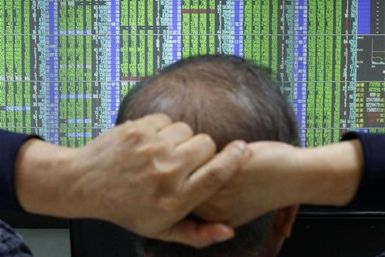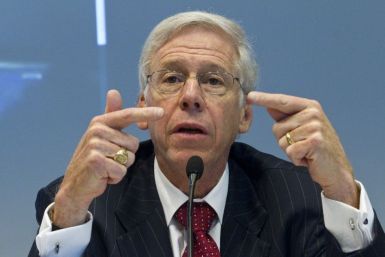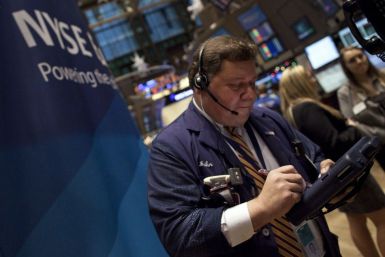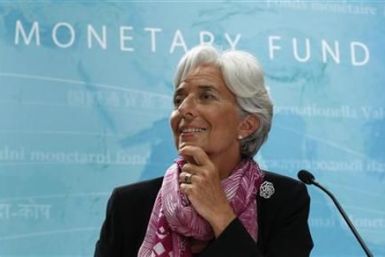Greek Prime Minister Lucas Papademos faces the critical task of convincing international lenders and political-party leaders on Sunday to agree to the stringent terms of a 130 billion euro ($171 billion) rescue plan to stave off looming default.
Greece's government on Saturday struggled on in talks with lenders to secure a 130 billion euro ($171 bilion) bailout before turning to the trickier task of persuading political leaders to back the unpopular reforms involved in the rescue.
European stocks were up around midday on Friday, hitting a six- month high as investors cheered data that hinted the euro zone may avoid slipping back into recession, eclipsing a disappointing start to the earnings season.
Many analysts remain bullish on gold and expect it to continue to rally in 2012.
Gold prices, headed for their strongest January in three years, rose Tuesday as fears of a Greek sovereign debt default receded, the dollar weakened and crude oil and copper prices increased.
Chancellor Angela Merkel cemented her political ascendancy in Europe Monday when 25 out of 27 EU states agreed to a German-inspired pact for stricter budget discipline, even as they struggled to rekindle growth from the ashes of austerity.
Greece's Prime Minister Lucas Papademos held talks on restructuring Greek debt with senior officials from the European Central Bank and the European Union after an EU summit on Monday, officials said.
On the European currency, a mood of short-term relief tinged with longer-term doubt prevails among the world's movers and shakers at this year's World Economic Forum session in the Swiss Alps.
Greece must surrender control of its budget policy to outside institutions if it cannot implement reforms attached to euro zone rescue measures, the German economy minister was quoted as saying on Sunday.
Greece and its private creditors said on Saturday they were piecing together the final elements of a debt swap, and they expected to have a deal ready next week, which would be essential for sealing a new bailout and avoiding an uncontrolled default.
European shares ended down on Friday as disappointing U.S. economic data prompted investors to cash in January's gains, dragging the blue-chip index to its first weekly loss since mid-December.
World stocks held steady near a 5-1/2 month high on Friday as investors anticipated an imminent conclusion to Greek debt talks while lower Spanish bond yields and a fall in Italy's six-month borrowing costs also supported the euro.
World stocks fell from a 5-1/2 month high on Friday as gains spurred by the Federal Reserve's pledge of low interest rates gave way to concerns about Portugal, seen as the next domino in the Eurozone crisis, and uncertainty over Greek debt talks.
Greece and its private creditors made progress Thursday in talks on restructuring its debt, both sides said, and they will continue negotiating on Friday with the aim of sealing an agreement within a few days.
The European Central Bank remains no closer to agreeing on whether or not it will take losses on the Greek bonds it owns, Eurozone central bank sources said on Thursday.
German Chancellor Angela Merkel said on Thursday talks between the Greek government and its private creditors were on track but next Monday's EU summit would focus on how to boost growth and employment in Europe rather than Greece's predicament.
New orders for U.S. manufactured goods rose in December and a gauge of future business investment rebounded, showing the U.S. economy ended the year with more momentum than previously thought.
New orders for manufactured goods rose in December and a gauge of future business investment rebounded, while new claims for jobless benefits rose only moderately last week, suggesting the labor market was still healing.
Greece's tortuous negotiations over a debt swap with private creditors entered a new phase on Thursday with focus on how much the European Central Bank and other public creditors may need to contribute.
Stock index futures rose on Thursday, adding to gains from the previous session when the Federal Reserve boosted equities by saying it was likely to keep interest rates near zero until at least late 2014.
Italy's borrowing costs dropped sharply as it sold the maximum amount of 5 billion euros at an auction of short-term debt on Thursday, helping drive down yields on its longer-dated bonds ahead of a crucial sale of five- and 10-year paper on Monday.
Greece resumes tortuous negotiations on a debt swap with private creditors in Athens on Thursday, with all eyes on the European Central Bank after IMF chief Christine Lagarde said public sector holders of Greek debt may need to take a haircut too.









